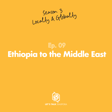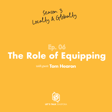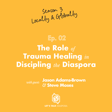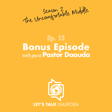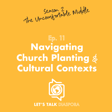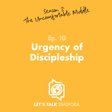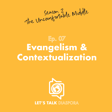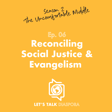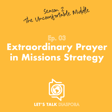
The Big Picture of UPG Engagement
In the first episode of Season 2 of the "Let's Talk Diaspora" podcast, hosts Rebecca and Bud explore the theme of "The Uncomfortable Middle" in mission strategy within diaspora communities. They break down the various phases of this strategy: Calling, Sending, Preparation, Connecting, Sharing, Evangelism, Discipleship, Church Planting, and Leadership Development. Each phase is accompanied by tensions and dilemmas that arise in the context of diaspora missions.
The hosts emphasize the importance of understanding the biblical pattern of apostolic workers, who are sent out with a clear purpose. They discuss the tension surrounding the concept of "calling," highlighting the need to affirm the role of the Holy Spirit in the process and the role of the church in confirming the calling. They also address the significance of corporate prayer in churches and the challenges posed by a lack of engagement in prayer.
The podcast delves into tensions related to connecting with people from diverse cultures, including debates on contextualization, language acquisition, and the use of signs and wonders. The hosts stress the necessity of sharing the gospel with words and actions, addressing the common misconception that actions alone are sufficient to convey the message of Christ.
As the hosts transition to the phases of discipleship, church planting, and leadership development, they underscore the vital role of developing leaders within the community and the importance of balancing character and competency in leadership. The episode concludes with a recap of the phases discussed and a preview of the season ahead, promising further exploration of these tensions within diaspora missions.
If you enjoyed this episode please consider sharing, rating, or subscribing.
Thanks for listening!
